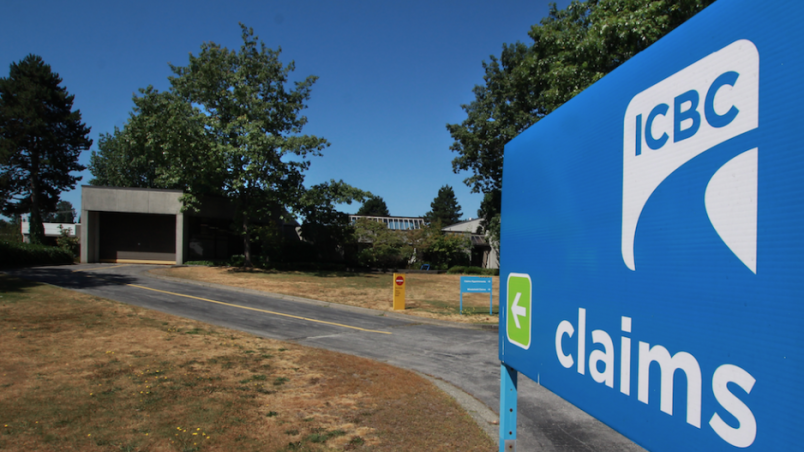The B.C. Court of Appeal has upheld the NDP government’s moving minor motor vehicle accidents to the Civil Resolution Tribunal (CRT) as an acceptable experiment in reforming ICBC’s past system for compensating injuries, B.C.’s Court of Appeal ruled.
In his May 12 decision, Chief Justice Robert Bauman said the former system was threatening ICBC’s viability, a situation the province had identified.
“The impugned scheme is an experiment with a new form of access to justice and represents an integrated comprehensive effort at reform directed at a social mischief identified by other branches of government,” Bauman said.
In 2019, provincial legislation came into force granting the CRT jurisdiction to decide liability and damages for minor injuries resulting from motor vehicle accidents.
The case was an appeal of a March 2021 decision of B.C. Supreme Court Chief Justice Christopher Hinkson. He ruled that the government’s move to divert minor injury claims to the CRT instead of being litigated in court unconstitutional.
Hinkson struck down sections of B.C.’s Civil Resolution Tribunal Act dealing with ICBC reforms as unconstitutional.
The act was amended by the NDP government as part of a suite of reforms to the provincial motor insurance system, some giving the CRT jurisdiction over motor vehicle claims.
Some parts of the CRT’s jurisdiction are exclusive to it and others are shared with B.C. Supreme Court of British Columbia, Bauman said.
Bauman said the CRT was given exclusive jurisdiction to classify an injury as a minor injury. And, that triggers a presumption that associated damages are below the tribunal limit amount of $50,000.
Bauman said the $50,000 limit for the tribunal is comparable to the modern-day equivalent of the jurisdiction of lower courts.
“In my view, a consideration of this factor does not favour invalidating the scheme," he said.
As a result, Bauman explained, the CRT has presumptive, but not exclusive, jurisdiction to decide liability and damages.
Further, he said, the legislation directs the Supreme Court to dismiss or stay matters that are within the jurisdiction of the CRT unless it would not be in the interests of justice and fairness. That said, CRT decisions might be taken to the courts for judicial review.
Parties may apply for judicial review of decisions of the CRT, with decisions relating to liability and damages being reviewed on roughly the appellate standard of review.
The Trial Lawyers Association of BC and several motor vehicle claims plaintiffs challenged the CRT scheme. They argued in Supreme Court the scheme violated the 1867 Constitution Act, removing power from superior courts.
“The challenge was successful, with the judge declaring the relevant provisions of the legislation to be of no force or effect,” Bauman said.
B.C.’s Ministry of the Attorney General and others appealed. They argued the judge erred in assessing the role of inferior and superior courts at the time of Confederation.
Bauman said historically, personal injury and damages law in Canada has been shared between various courts, that the law does not take on the jurisdiction of B.C. Supreme Court.
“The Supreme Court of British Columbia retains significant involvement over personal injury and tort law general,” he said.
